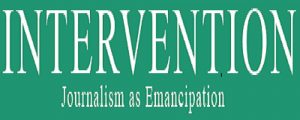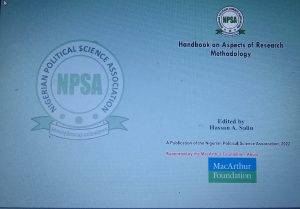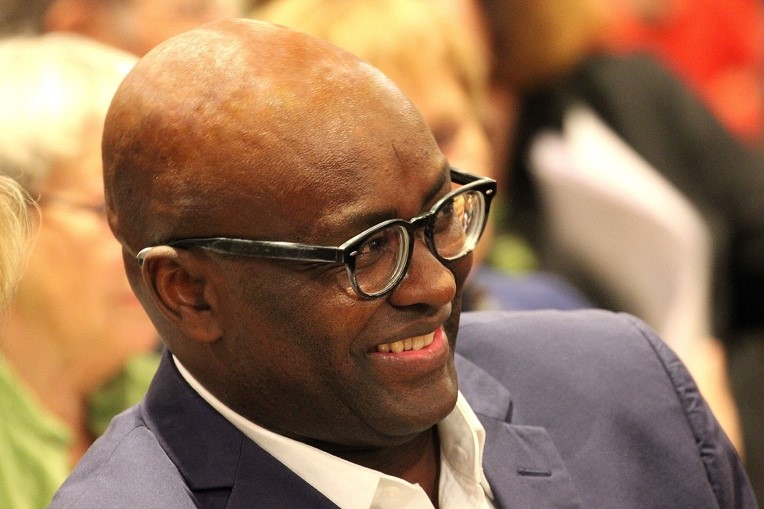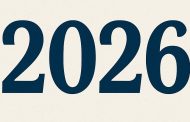Intervention has remained a basically self-edited platform. Its admirers write out their minds and it goes. Intervention practically takes and publishes whatever it receives. That has been part of its strength in some quarters and its weakness in some other quarters. Some people think it should not publish certain things. Unfortunately, it is not conceived in that manner. It has been conceived to bridge the binaries – take on board the serious and the unserious; the banal and the deep; the high and the low; the left and the right and so on. No binary is to be privileged without it earning such privileging because every privilege is a suppression of other privileges.
But, even as self-edited as the platform, it has also had an editor. This is in the sense that one of the four Editorial Associates has been coordinating the essentially professional processing of materials for publication and handling day-day running. To that extent, there has been an editor and a very interesting job for that matter even as it remains impossible to guess right what people want to read. In the past four or so years, it has been the material one thinks nobody will read that climbs rapidly to 500 clicks within a few hours, then 2000+ in two or three days and more by the end of a week, especially stories of death. On the other hand, it is the supposedly well researched piece that finds it hard to climb up to 200 even within a week and still less than 500 even up to a month. Some simply do not go beyond 200.
 The editor who has seen all these in the past few years is hopefully leaving for a different challenge, thereby throwing open the ‘position’ of an editor. That can be a problem. This society’s reaction to and reception for Intervention has been a mixed grill: from indifference to excitement/involvement and extreme hostility at the other end of the spectrum. These, it can be argued, came in nearly equal intensity. While most of those excited by it have done all they can to keep it going, those hostile to it have gone to excesses in trying to hurt it. An individual tried to carry out an operation that failed. A regional platform could not imagine Intervention and some people in power were almost tempted to undo it. God prevailed and Intervention is still here.
The editor who has seen all these in the past few years is hopefully leaving for a different challenge, thereby throwing open the ‘position’ of an editor. That can be a problem. This society’s reaction to and reception for Intervention has been a mixed grill: from indifference to excitement/involvement and extreme hostility at the other end of the spectrum. These, it can be argued, came in nearly equal intensity. While most of those excited by it have done all they can to keep it going, those hostile to it have gone to excesses in trying to hurt it. An individual tried to carry out an operation that failed. A regional platform could not imagine Intervention and some people in power were almost tempted to undo it. God prevailed and Intervention is still here.
In all cases, the editor has been a factor in this success. Through his age, experience and insertion in different layers of society, Intervention could absorb the shocks, react to some and ignore some others completely without any consequences.
This is the challenge in finding a new editor for a platform that not only has little or no material rewards but confronts and must overwrite intimidation or organised hostility to the ideals of Intervention. It is not that there are no such candidates but people who have been prepared by education and experience to see value in what Intervention thinks it is doing in a society in which it is all too easy to transform from a good guy to a bad guy.
It was expected that a society such as Nigeria would see something in a mediated representation differently informed or structured in terms of focus, formats and practices that deride and degrade hierarchical mentality, non-challance, preference for muddling through or proclivity to liliputianism and similar antediluvian orientation and their costly consequences for the society. It was similarly expected that an echelon exists that will appreciate and protect a platform such as Intervention, situating whatever discomfort Intervention might have come with in the imperative for internal mechanisms by which every society must remind or alert itself of paradoxes so as not to risk one-dimensionalism. Intervention did not find this in sufficient quantity in Nigeria even as strong as the reception for it in certain circles and certain individuals. It shows a disturbing manifestation of the love for nodding in approval of only those formats, models and practices that majority is comfortable with. That is a dangerous sign in a world in which even governments elsewhere are setting up universities, research centres and think tanks that will produce stuff that would normally be considered unsettling.

A major step, especially if the sequel addresses the gap
That is frightening because Intervention might be no more than a very small illustration of this tendency and there must be bigger illustrations of carelessness to such means by which a social order is legitimized and protected from shocks.
Irrespective of whether Nigeria comes to grip with the imperative of widening the inter-discursive space in system legitimation and the ordered society, Intervention will, somehow, carry on. As long as it does not operate in a manner that is tantamount to targeting any identity group, it feels alright in unsparing ridiculing of naturalistic reasoning; its abiding attraction for new ideas and its insistence that we can and should always raise the bar.
There is no knowing how an editor will emerge at this point and from where. It is on the floor. Perhaps, it is not an editor that is needed but a structural re-arrangement of Intervention itself except that all such tinkering must also think of the financial implications.
Listening to Achille Mbembe speaking on ‘Africa in Theory’ on April 21st, 2022 in a huge zoom session, one’s wish is that Intervention, in its present or modified version, continues to exist. The African philosopher whose mien and presence can be very humbling said, among so many other things that what he calls the New Agenda is to redefine Africa but beyond the facticity of it to the challenge of turning facts into symbols, signs or meaning. And he put this as the only guarantee against a crippled futurity.
How great it would be if it were that the numerous online newspapers, traditional media outfits and other channels for mediation of society in Nigeria appreciates or can appreciate the meaning of what Mbembe is saying. How so great it would be if Nigerian universities were in a position to produce graduates with the skills to operationalize what Mbembe is saying. For, in the age of the “Empire of signs”, these are the foot soldiers of social change, particularly in the context of the paradigm of ‘Planetary Entanglement’ by which we, in Africa, in particular became and have remained mere objects of history rather than subjects and within which we would be worse off in its automated version just unfolding. In that context, the degree of leadership failure and the level of corruption in Nigeria pales into insignificance when compared to the fact that much of what we teach in the universities today is hardly adequate, especially in the social sciences in terms of the insights and skills for surviving the ‘Empire of signs”, much less pose an organised contestation of it.
If we follow Mbembe (and there are no reasons why we should not), there is already cause to worry about the future if we don’t transform our universities from certificate awarding institutions to knowledge production centres. It is pleasant that the Nigerian Political Science Association, (NPSA) has started something whose sequel should hopefully ignite prepare the ground for the kind of intellectual capacity with which our products can discipline the world because the world is not out there. Rather, the world is what we make of it. What we make of it is dependent on transforming facticity to signs, symbols and meaning in terms of how we see and enact the world and what the world comes to see us, (Africans) as. Neopositivist rationalism, including its most radical humanism, cannot give us this. The question is how many other NPSAs have also started anything similar or which manifests the NPSA awareness of the problem?
With this, we have already declared vacancy for the next editor of Intervention, the most important qualifications required and the tasks involved. So, help us God!




























